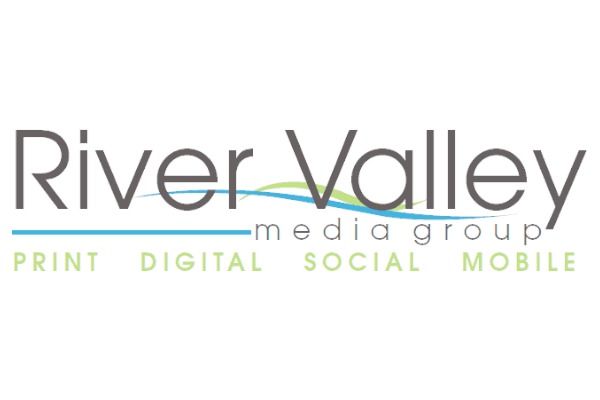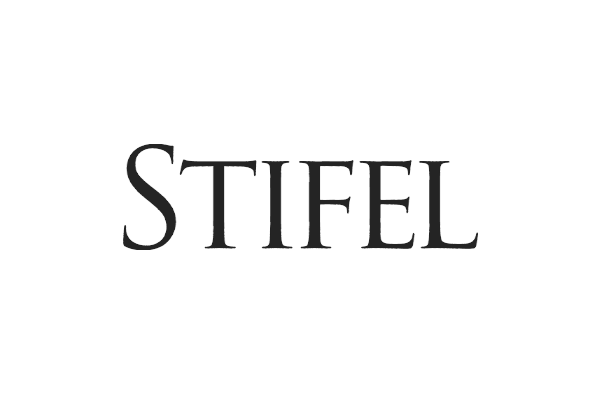La Crosse Community Theatre values our volunteers, students, patrons, artists, and staff. We are committed to providing a safe and welcoming environment for all. If you have a concern relating to sexual harassment, please email our HR Representatives at HR@lacrossetheatre.org
If you prefer, you may also submit an HR concern anonymously with this form.
Please see below for further information on LCT's sexual harassment policies and procedures.
Harassment
Harassment based on race, color, national origin, religion, gender, age, creed, marital status, disability, sexual orientation, or any characteristic protected by law is a violation of LCT policy. LCT recognizes that harassment undermines morale and interferes with productivity and will not be tolerated.
This policy applies to and prohibits harassment by everyone at LCT. Violation of LCT’s discrimination and harassment policy by any employee, volunteer, or contractor will result in disciplinary action up to and including termination. No one will be subject to any retaliation for filing a complaint or participating in the investigation of such complaint.
Sexual Harassment
Policy Brief & Purpose
The sexual harassment policy aims to protect men, women, transgender, and non-binary individuals from unwanted sexual advances and give them guidelines to report incidents. The policy will also explain how to handle claims, punish sexual harassment and help victims recover.
The La Crosse Community Theatre (LCT) will not tolerate sexual harassment in the Weber Center in any shape or form. LCT’s culture is based on mutual respect and collaboration. Sexual harassment is a serious violation of those principles.
Scope
This policy applies to every person at LCT regardless of gender, sexual orientation, level, function, seniority, status or other protected characteristics. LCT is obliged to comply with this policy. Also, LCT won’t tolerate sexual harassment from inside or outside of the company. Employees, investors, contractors, customers and everyone interacting with our company are covered by the present policy.
Policy Elements
What is sexual harassment?
Sexual harassment has many forms of variable seriousness. A person sexually harasses someone when they:
- Insinuate, propose or demand sexual favors of any kind.
- Invade another person’s personal space (e.g. inappropriate touching.)
- Stalk, intimidate, coerce or threaten another person to get them to engage in sexual acts.
- Send or display sexually explicit objects or messages.
- Comment on someone’s looks, dress, sexuality or gender in a derogatory or objectifying manner or a manner that makes them uncomfortable.
- Make obscene comments, jokes or gestures that humiliate or offend someone.
- Pursue or flirt with another person persistently without the other person’s willing participation. Also, flirting with someone at an inappropriate time (e.g. in a team meeting) is considered sexual harassment, even when these advances would have been welcome in a different setting. This is because such actions can harm a person’s professional reputation and expose them to further harassment.
The most extreme form of sexual harassment is sexual assault. This is a serious crime and LCT will support anyone who want to press charges against offenders.
LCT’s Rules on Sexual Harassment
No one has the right to commit sexual harassment. Any person in our company who is found guilty of serious harassment will be terminated, whether they are VPs or assistants. Also, if representatives of our contractors or vendors sexually harass our employees, a volunteer, or another contracted artist, we will demand that the company they work for takes disciplinary action and/or refuse to work with this person in the future.
Sexual harassment is never too minor to be dealt with. Any kind of harassment can wear down a person and create a hostile environment. LCT will hear every claim and punish offenders appropriately.
Sexual harassment is about how we make others feel. Many do not consider behaviors like flirting or sexual comments to be sexual harassment, thinking they are too innocent to be labeled that way. But, if something you do makes your colleagues uncomfortable, or makes them feel unsafe, you must stop.
We assume every sexual harassment claim is legitimate unless proven otherwise. We listen to victims of sexual harassment and always conduct our investigations properly. Occasional false reports do not undermine this principle.
We will not allow further victimization of harassed individuals. We will fully support anyone who is sexually harassed and will not take any adverse action against them. For example, we will not move an employee to a position with worse pay or benefits or allow others to retaliate against them.
Those who support or overlook sexual harassment are as much at fault as offenders. Directors and Managers especially, are obliged to prevent sexual harassment and act when they have suspicions or receive reports. Letting this behavior go on or encouraging it will bring about disciplinary action. Anyone who witnesses an incident of sexual harassment or has other kinds of proof should report.
Sexual Harassment as it Pertains to a Theatrical Production or Environment
The Goal
We seek to understand sexual harassment as it pertains to the theatre, provide procedures to prevent it, and outline recourse when it occurs. We recognize the potential for harassment in rehearsal, during performance, and outside the theatre among participants, staff, board, and audience members. We acknowledge theatre environments can court confusion about the difference between chemistry, artistic freedom, and harassment; we believe participants can be bold and live "in the moment" of theatrical material while maintaining choreography, fellow participants' safety, and agreed-upon boundaries.
The Standard
Clear boundaries should be established and agreed upon among all participants involved, both in rehearsals and performance, particularly in scenes depicting violence, sex, intimate contact, abuse, or gestures of intimacy.
For reference, according to the U.S. Equal Employment Opportunity Commission (EEOC), sexual harassment is described as follows:
- It is unlawful to harass a person (an applicant or employee) because of that person's sex. Harassment can include "sexual harassment" or unwelcome sexual advances, request s for sexual favors, and other verbal or physical harassment of a sexual nature.
- Harassment does not have to be of a sexual nature, however, and can include offensive remarks about a person's sex. For example, it is illegal to harass a woman by making offensive comments about women in general.
- Both victim and the harasser can be either a woman or a man, and the victim and harasser can be the same sex. We extend this statement from EEOC to say the victim and harasser can have different sexual/gender identities or the same.
- Although the law doesn't prohibit simple teasing, offhand comments, or isolated incidents that are not very serious, harassment is illegal when it is so frequent or severe that it creates a hostile or offensive work environment or when it results in an adverse employment decision (such as the victim being fired or demoted).
- The harasser can be the victim's supervisor, a supervisor in another area, a co-worker, or someone who is not an employee of the employer, such as a client or customer.
- The EEOC covers "employees" only, not contractors and volunteers. For that reason, this standard seeks to provide a definition for sexual harassment in the theatrical workplace for participants not covered by EEOC laws and other regulations, and to provide an understanding of and sensitivity to the nuances of a theatrical workplace.
Harassment in a broader sense includes, but is not limited to:
- Inappropriate or insulting remarks, gestures, jokes, or innuendoes or taunting about a person's gender, gender identity, sexual orientation, racial or ethnic background, color, place of birth, citizenship, ancestry, creed, or ability;
- Persistent unwanted questions or comments about a participant's private life outside the boundaries of consent established in rehearsal;
- Posting or displaying materials, articles, graffiti, and so on, which may cause humiliation, offense, or embarrassment on prohibited grounds that are outside the parameters of the production. A production about pornography, violence, or racism may involve such images in the rehearsal space or in a dramaturgy packet, but such images are not appropriate for open display in dressing rooms, bathrooms, or other similar spaces.
Sexual Harassment in a Theatrical Workplace:
In a theatrical context, harassment can be additionally defined as one or a series of comments or conduct of a gender-related or sexual nature outside the boundaries of consent or production content, which is known or ought reasonably to be known to be unwelcome/unwanted, offensive, intimidating, hostile, or inappropriate. It is worth noting that the higher the emotional/sexual risk a production asks of its artists, the greater the diligence of each member of production and artistic staffs is needed to foster an environment of emotional safety.
Sexual harassment includes but is not limited to:
- Unwelcome remarks, jokes, innuendoes, or taunts about a person's body, attire, gender, or sexual orientation outside the boundaries of consent related to production content;
- Negative stereotyping of race, gender, gender identity, religion, color, national origin, ancestry, marital status, sexual orientation, ability, or other status protected by law outside the boundaries of consent related to production content;
- Any unwanted or inappropriate physical contact such as touching, kissing, massaging, patting, hugging, or pinching outside the boundaries of consent related to production content;
- Inquiries or comments about a person's sex life or sexual orientation outside the boundaries of consent or production content; Leering, whistling, or other suggestive or insulting sounds outside the boundaries of consent related to production content;
- Inappropriate comments about clothing, physical characteristics, or activities outside the boundaries of consent related to production content;
- Posting or displaying materials, articles, or graffiti that is sexually oriented outside the boundaries of consent related to production content;
- Requests or demands for sexual favors, especially those that include, or imply, promises of rewards for complying (e.g., job advancement opportunities) and/or threats of punishment for refusal (e.g., denial of job advancement or opportunities) outside the boundaries of consent related to production content;
- Attempting to engage in sexual behaviors offstage that are choreographed for the stage;
- Suggesting an actor who appears naked onstage or in rehearsal is not allowed physical boundaries and/or privacy backstage or in the dressing room and/or not respecting those boundaries;
- Intentional failure to observe the dressing room standards laid out in this document;
- Inviting an actor to rehearse sexual content outside of scheduled rehearsals;
- Repeated invitation / suggestion to take relationships of a sexual nature beyond the stage;
- Using the text of a production that is sexual, violent, threatening, or offensive in offstage discourse;
- Improvising sexual content without expressed consent.
Participants Have the Right to be Free From:
- Sexual solicitation or advances made by a person in a position to confer, grant, or deny a benefit or advancement outside production content;
- Reprisal or threat of reprisal for the rejection of a sexual solicitation or advance where the reprisal is made by a person in a position to grant, confer, or deny a benefit or advancement outside production content.
- Any of the behaviors outlined here have the potential to create a negative environment for individuals or groups. It should be noted that a person does not have to be a direct target to be adversely affected by a negative environment. It is understood that creative atmospheres are not always "emotionally sanitary" - t hey can safely be bawdy, profane, vulgar, and challenging. We assert that having (a) a practice of building consent and (b) an environment that allows for response to clear boundary violations can broaden our opportunity to be challenging and fearless in our work.
- Concerns about harassment, safety, or a negative environment should be reported using the “harassment complaint procedure (starting with the “informal resolution” wherever possible), and all concerns should be treated with the utmost respect for the safety and wellbeing of all participants.
Harassment Complaint Procedure
We highly encourage all members of LCT to report any lack of mutual respect or harassment immediately to the LCT’s HR Representatives. All allegations of harassment will be promptly and thoroughly investigated, treated in a confidential manner, and information pertaining to the investigation will be shared only with appropriate individuals on a need to know basis. Board members will be notified any time there is an investigation taking place by an outside law firm, but will not receive any details about what the allegations entail, unless deemed necessary to the investigation.
Reporting Procedure
Anyone who believes they have been discriminated against or sexually harassed should report the alleged act immediately. LCT has two HR Representatives. The current representatives are Stephen Conrad and Pat Heim. Anyone wishing to file a formal complaint may contact the HR Representatives at HR@lacrossetheatre.org. Those who wish to remain anonymous may file a complaint using the online complaint form found at lacrossecommunitytheatre.org
After reviewing the complaint, the HR Representatives will determine the appropriate level of corrective response and partner only with those who have a legitimate business need to know. The HR Representatives will determine the appropriate level of corrective response, which may include, but is not limited to education, an apology, documentation of formal or informal coaching, removal of the alleged perpetrator from involvement at LCT, termination of employment, referral to local authorities, or other corrective action. The complainant and the subject of the investigation will be informed, where appropriate, of the findings of the investigation.
Harassment Reporting Flow Chart
Training for Employees
LCT will provide two hours of accredited sexual harassment training to all employees with supervisor duties. Training will occur every two years to each supervisory employee and to all new supervisory employees within 60 (sixty) calendar days of their assumptions of a supervisory position.
LCT will provide one hour of accredited sexual harassment training to all non-supervisory employees. Training will occur every two years to each non-supervisory employee and to all new non-supervisory employees within 60 (sixty) calendar days of their hire date.
In addition, seasonal and temporary employees, or any employee that is hired to work for less than six months. LCT shall provide training within 30 calendar days after the hire date or within 100 hours, whichever occurs first. Temporary workers employed by a temporary agency must be trained by the temporary agency, not LCT.
Disciplinary Guidelines
The LCT Executive Artistic Director and Board of Directors believe in providing a climate that fosters creative thinking, teamwork, and professional growth. We believe that the best disciplinary measure is the one that does not have to be enforced and comes from good leadership and fair supervision at all employment levels.
We also believe that it is in the best interests of LCT to ensure fair treatment of all employees and make certain that disciplinary actions are prompt, uniform, and impartial. The major purpose of any disciplinary action is to correct a problem, prevent recurrence, and prepare an employee for satisfactory performance in the future.
Although your employment is based on mutual consent and both you and LCT have the right to terminate employment at will, with or without cause or advance notice, LCT may use progressive discipline at its discretion.
Disciplinary action may call for any of four steps -- verbal warning, written warning, suspension with or without pay, or termination of employment -- depending on the severity of the problem and the number of occurrences.
Progressive discipline means that, with respect to most disciplinary problems, these steps will normally be followed: a first offense may call for a verbal warning; a next offense may be followed by a written warning; another offense may lead to a suspension; and, still another offense may then lead to termination of employment. There may be circumstances when one or more steps are bypassed. If more than 12 months have passed since the last disciplinary action, the process will normally start over.
LCT recognizes that there are certain types of employee problems that are serious enough to justify either a suspension, or, in extreme situations, termination of employment, without going through the usual progressive discipline steps.
While it is impossible to list every type of behavior that may be considered a serious offense, the employee policies include examples of problems that may result in immediate suspension or termination of employment. However, the problems listed are not all necessarily serious offenses, but may be examples of unsatisfactory conduct that will trigger progressive discipline.
By using progressive discipline, we hope that most employee problems can be corrected at an early stage, benefiting both employees and LCT.
Diversity and Inclusivity
La Crosse Community Theatre believes a diverse, inclusive, and equitable workplace is one where all employees and volunteers, whatever their gender, race, ethnicity, national origin, age, sexual orientation or identity, education or disability, feels valued and respected. We are committed to a nondiscriminatory approach and provide equal opportunity for employment and advancement in all of our departments, programs, and worksites. We respect and value diverse life experiences and heritages and ensure that all voices are valued and heard.
We’re committed to modeling diversity and inclusion for the entire arts industry of the nonprofit sector, and to maintaining an inclusive environment with equitable treatment for all.
To provide informed, authentic leadership for cultural equity, La Crosse Community Theatre strives to:
- See diversity, inclusion, and equity as connected to our mission and critical to ensure the well-being of our staff and the arts communities we serve.
- Acknowledge and dismantle any inequities within our policies, systems, programs, and services, and continually update and report organization progress.
- Explore potential underlying, unquestioned assumptions that interfere with inclusiveness.
- Advocate for and support board-level thinking about how systemic inequities impact our organization’s work, and how best to address that in a way that is consistent with our mission.
- Help to challenge assumptions about what it takes to be a strong leader at our organization, and who is well-positioned to provide leadership.
- Practice and encourage transparent communication in all interactions.
- Commit time and resources to expand more diverse leadership within our board, staff, committee, and advisory bodies.
- Lead with respect and tolerance. We expect all employees to embrace this notion and to express it in workplace interactions and through everyday practices.
- La Crosse Community Theatre abides by the following action items to help promote diversity and inclusion in our workplace:
- Pursue cultural competency throughout our organization by creating substantive learning opportunities and formal, transparent policies.
- Generate and aggregate quantitative and qualitative research related to equity to make incremental, measurable progress toward the visibility of our diversity, inclusion, and equity efforts. Once the content is curated it will be added to our website so others can access.
- Improve our cultural leadership pipeline by creating and supporting programs and policies that foster leadership that reflects the diversity of American society.
- Pool resources and expand offerings for underrepresented constituents by connecting with other arts organizations committed to diversity and inclusion efforts.
- Develop and present sessions on diversity, inclusion, and equity to provide information and resources internally, and to members, the community, and the arts industry.
- Develop a system for being more intentional and conscious of bias during the hiring, promoting, or evaluating process. Train our hiring team on equitable practices.
- Include a salary range with all public job descriptions.
- Advocate for public and private-sector policy that promotes diversity, inclusion, and equity. Challenge systems and policies that create inequity, oppression and disparity.

















